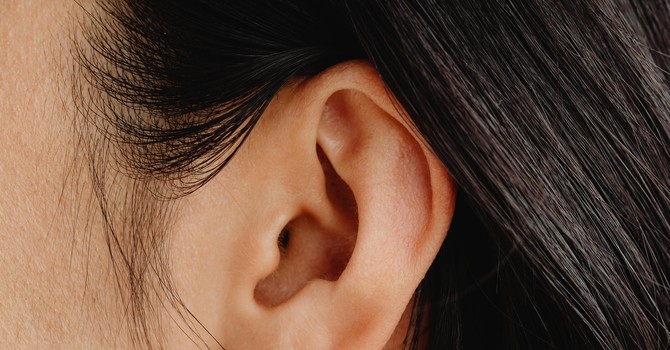Causes (Root) of Eczema & Psoriasis
There are a number of factors that can trigger eczema and psoriasis. While many assume the issue lies solely with the skin, the cause often runs much deeper. In Traditional Chinese Medicine (TCM), both acupuncture for eczema and herbal formulas work to balance the root causes, rather than only addressing skin symptoms. These conditions are viewed not as skin diseases, but as disorders of the blood, liver, or digestive system that manifest on the skin.
When the liver and digestive system aren’t eliminating toxins effectively, they build up in the bloodstream. In TCM, this is referred to as "blood heat" (liver) or "damp congestion" (digestive). Diet can worsen the condition. Coffee, alcohol, and dairy are common offenders—particularly when someone has an intolerance to milk proteins like casein or whey. As toxicity rises in the blood, the body tries to expel it through other channels, like the skin’s sweat glands. But the skin isn’t designed to handle this toxic load. The result? Inflammation, irritation, and the classic symptoms of eczema and psoriasis like itchiness, redness, and flaky skin.
Top 6 Herbs For Eczema & Psoriasis
Skin conditions like eczema and psoriasis can be frustrating. They cause itchy, red patches on the skin and are notoriously difficult to fix. Normal treatment for these conditions often involves topical anti-inflammatory creams, but these usually provide only temporary or partial relief. Recurrence is common.The problem with this approach is that it targets the symptom (branch) rather than the root cause. Traditional Chinese medicine takes a different approach—looking past the skin to find the underlying cause of the condition, which might not be what you expect.
Herbs offer unique treatment options for these conditions and, when used correctly, can address not only the symptoms but also the underlying causes of these frustrating conditions.
Here are six of the best herbs for eczema and psoriasis according to TCM and Western herbal traditions:
1. Oregon Grape Root (Mahonia aquifolium)
Oregon grape root is a powerful herb for chronic skin conditions. Containing the alkaloid berberine, it works as both an antimicrobial and a liver stimulant. Oregon grape root promotes bile flow, enhancing the body's detoxification pathways and clearing metabolic by-products that contribute to skin eruptions. Traditionally, it's been used for inflammatory skin issues such as psoriasis and eczema.
2. Sarsaparilla (Smilax spp.)
Sarsaparilla has a long history of use as a blood cleanser in both Western and Ayurvedic traditions. It binds and neutralizes toxins circulating in the bloodstream and supports the liver and kidneys in their detoxification roles. In TCM, sarsaparilla is used to clear 'blood heat,' a key contributor to psoriasis and eczema. This makes it especially helpful when symptoms include redness, itchiness, and heat.
3. Calendula (Calendula officinalis)
While calendula is famous for its topical use in skin healing, it’s equally effective when taken internally. As a gentle lymphatic cleanser and anti-inflammatory herb, calendula helps relieve lymphatic congestion—a hidden driver of many chronic skin conditions. By moving stagnant fluids and reducing systemic inflammation, calendula supports clearer, healthier skin from the inside out.
4. Burdock Root (Arctium lappa)
Burdock root is a classic herb for skin conditions linked to toxicity and inflammation. It stimulates liver and kidney detoxification pathways, helping to clear the blood of impurities that can lead to skin flare-ups. Burdock is also rich in inulin, a prebiotic fiber that supports gut health—an often-overlooked aspect of managing chronic skin conditions like eczema and psoriasis.
5. Yellow Dock (Rumex crispus)
Yellow dock offers gentle yet effective support for detoxification and elimination. It stimulates bile production, supports healthy digestion, and acts as a mild laxative—ensuring toxins are cleared from the body efficiently. Its cooling, cleansing action makes it an excellent herb when skin conditions are associated with sluggish digestion or constipation.
6. Chamomile (Matricaria recutita)
Chamomile is more than just a relaxing tea. Internally, it offers anti-inflammatory, antiallergic, and digestive-soothing effects, helping to break the itch-scratch cycle common in eczema and psoriasis. By calming the nervous system and modulating histamine responses, chamomile reduces inflammation both internally and on the skin.
Convenient Herbal Support for Eczema & Psoriasis: DermaCo
7. Bonus Herb for Eczema, Psoriasis, and Detoxification: Milk Thistle (Silybum marianum)
Milk thistle remains a foundational herb for liver support. Its active compound, silymarin, has been shown to protect and regenerate liver cells while enhancing bile flow. When the liver is functioning optimally, the burden on the skin as an alternative detox organ is greatly reduced. For chronic skin issues linked to liver congestion, milk thistle is an invaluable addition.
How Acupuncture for Eczema Complements Herbal Therapy
Acupuncture for eczema is often combined with herbal medicine in Traditional Chinese Medicine (TCM) to address both the internal imbalances and the external symptoms of eczema and psoriasis. Acupuncture helps to regulate the immune response, reduce inflammation, and calm overactive skin reactions, while herbs support detoxification, liver function, and skin healing. Together, they create a holistic strategy for long-term relief.
Conclusion
Many of my patients benefit from combining Western and Traditional Chinese Medicine to manage their flare-ups. The goal is always to resolve the condition without relying on immunosuppressants or topical steroids, which can carry long-term health risks. While diet adjustments are often necessary, consistent use of a customized herbal formula over a three to six-month period can offer profound and lasting improvements. In addition to herbs for eczema, acupuncture can also play a powerful role in calming inflammation and regulating immune response. Consider exploring both acupuncture for eczema and customized herbal formulas for the most comprehensive approach.
References
- Yarnell, E. (2001). Clinical Botanical Medicine. Mary Ann Liebert, Inc.
- Hoffmann, D. (2003). Medical Herbalism: The Science and Practice of Herbal Medicine. Healing Arts Press.
- Bone, K., & Mills, S. (2013). Principles and Practice of Phytotherapy: Modern Herbal Medicine. Churchill Livingstone.
- Wood, M. (2009). The Earthwise Herbal: A Complete Guide to Old World Medicinal Plants. North Atlantic Books.
- Winston, D., & Maimes, S. (2007). Adaptogens: Herbs for Strength, Stamina, and Stress Relief. Healing Arts Press.

Ted Ray
Contact Me



